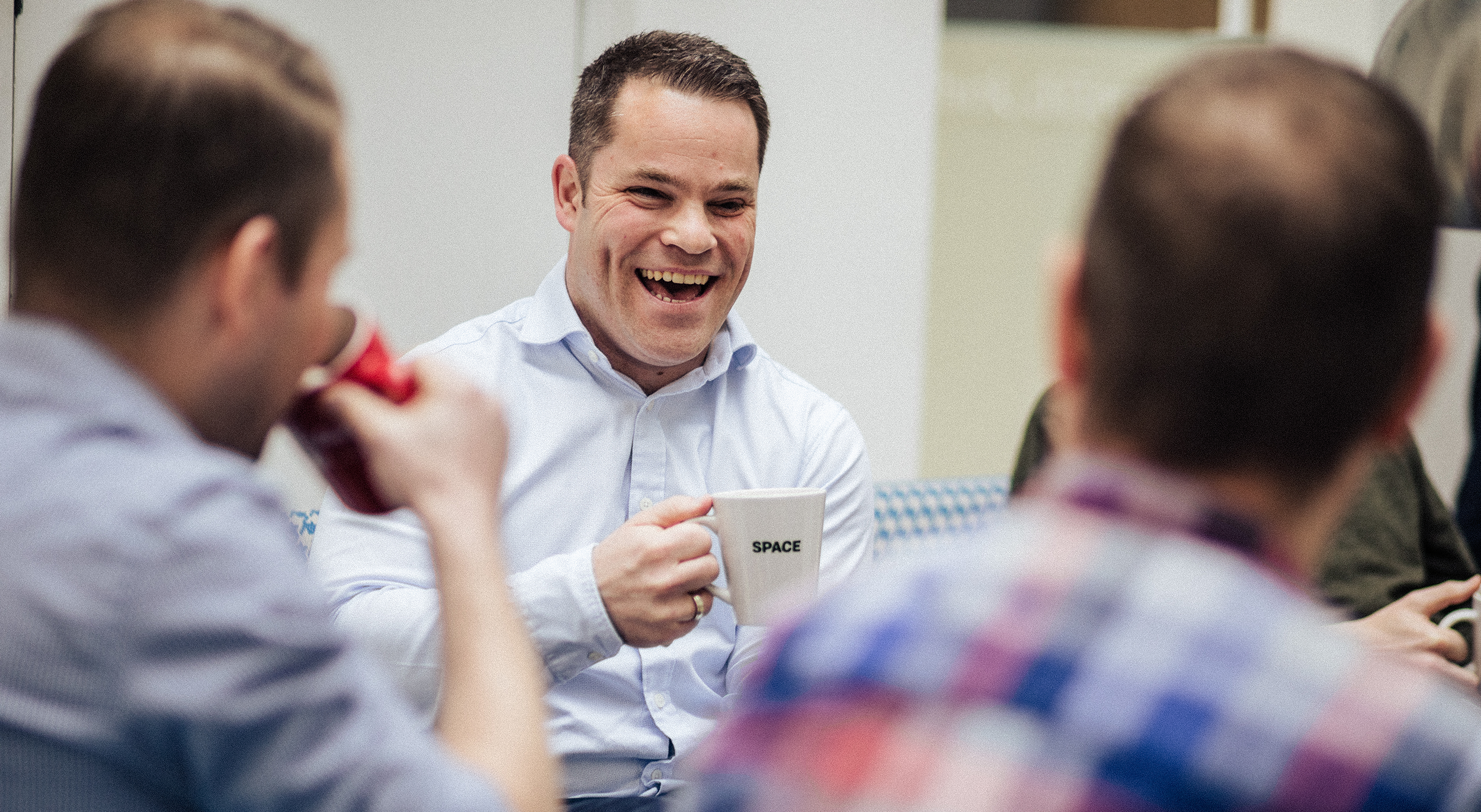
The Reality of Social Interactions
Waiting for a team meeting to begin or trying to muster up the courage to contribute to a brainstorming session, often became a self-inflicted hell. Like many people who struggle with social anxiety, in these situations I would replay past conversations in my mind, convinced I had come across as either too quiet, too awkward, or simply out of place. The longer I didn't speak, the more intense the feelings that arose in me. I was acutely aware of the need to appear engaged and confident, but often felt that my silence only drew more attention and judgement.
On reflection, much of this was quite irrational, but it felt very real at the time. Had it not been for the structure and necessity of showing up to work each day, I would have been tempted to retreat entirely and alter my career path to avoid such perceived persecution.
Thankfully, there are a few strategies we can implement to break this cycle of self-doubt and fear.

Challenging Workplace Anxiety
To even begin to challenge destructive thoughts, you must realise that you have the power to do so. And you do.
"You have power over your mind—not outside events. Realise this, and you will find strength." - Epictetus
This quote encapsulates the Stoic belief in focusing on what is within our control – our thoughts, reactions, and emotions. In a professional context, we often have little control over external events like a manager's feedback or a colleague's opinion. What we can control, however, is our internal response. Instead of viewing feedback or criticism as an attack, we can choose to see it as an opportunity for growth.
"The moment you realise you are not present, you are present. Whenever you are able to observe your mind, you are no longer trapped in it. Another factor has come in, something that is not of the mind: the witnessing presence." - Eckharte Tolle
Reframing Discomfort
"A gem cannot be polished without friction, nor a man perfected without trials." - Seneca
The workplace can be a hotbed of challenges and trials, each bringing its own form of friction. But it's through these difficulties that we learn, grow, and refine our skills. Instead of avoiding uncomfortable situations like difficult conversations or performance reviews, we can lean into the discomfort with curiosity and resilience. Each trial at work is a chance to polish our professional selves and become more adept at navigating the complexities of office life.
"Choose not to be harmed — and you won't feel harmed. Don't feel harmed — and you haven't been." - Marcus Aurelius
Side Note: Obviously, if you have your arm stuck in a piece of industrial machinery, you can't exactly choose to not be harmed in this situation. And, you do have control over screaming for help.
We must be prepared for what is to come, and cultivating a good stoic outlook does just that.
Final Thoughts
However enlightening these perspectives and principles are, they are not magical solutions. Even with the light bulb going off in our minds as we fully grasp the value of Stoic thinking, it is only with diligent focus, repetition, and practice that we can lay down the foundations for a new way of navigating workplace stress. A new way of thinking that provides the mental space for professional growth and flourishing.
While the idea of eliminating anxiety completely might sound ideal, the reality is that achieving such a feat is unlikely. Instead of striving to conquer it entirely, it's more practical to focus on coexisting with it—learning to manage anxiety in a way that allows us to flourish both personally and professionally.
If you struggle to lift your attention away from yourself during tense, socially awkward moments, you might find the following passage from Sam Harris useful:
"If things get bad, it's helpful to remember that the people you're dealing with are suffering. Almost everyone you meet is practically drowning in self-concern. Just look at them… listen to them. They're broadcasting their own self-doubt and, anxiety and disappointment. They're worried about what others think of them. If you can just take a step back from being implicated in what's happening around you, you will generally see that you are surrounded by a carnival of human frailty. So, compassion is available… We are all on the Titanic together.
This might sound depressing, but the flip side is also true. This brief life together is a beautiful miracle. This is the only circumstance that exists to be enjoyed. Whatever is true out in the cosmos, this is it for us. And wherever you are, whatever circumstance you find yourself in, however strained the conversation, this is the only life you have at this moment. So, you might as well enjoy it."

